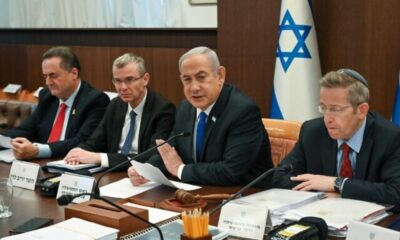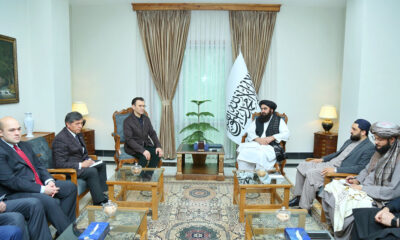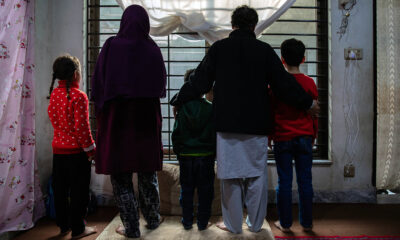Latest News
UNICEF launches historic $2 billion appeal to save the lives of millions of Afghans
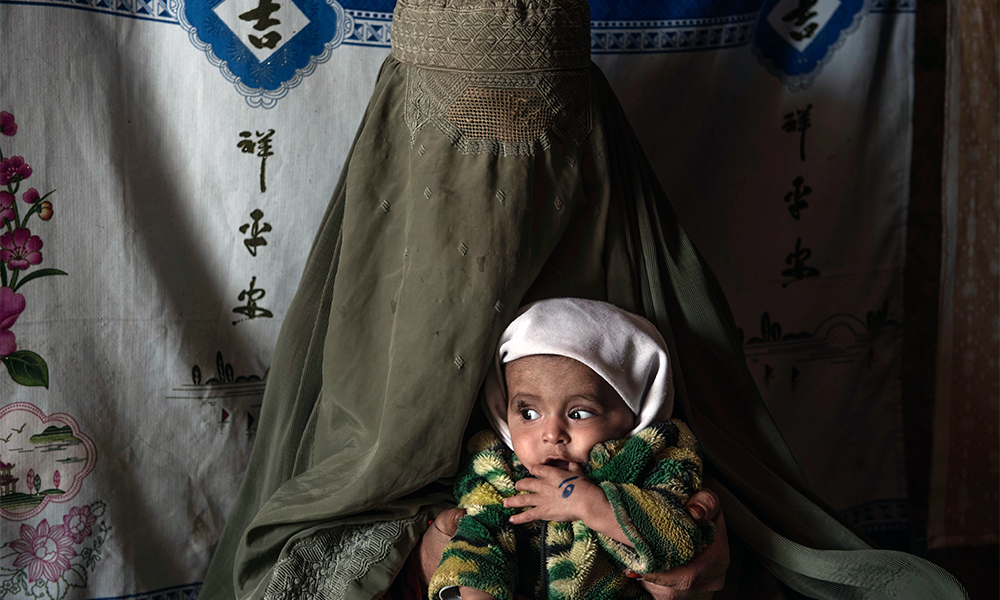
UNICEF launched its largest ever single-country appeal on Tuesday to urgently respond to the humanitarian needs of over 24 million people in Afghanistan, half of whom are children.
UNICEF said in a statement issued Tuesday that the appeal for US$2 billion will help to avert the imminent collapse of health, nutrition, WASH, education and other vital social services for children and families.
This comes amid a continuing humanitarian crisis. According to UNICEF there are alarming disruptions in health and nutrition services, a disastrous food crisis, drought, outbreaks of measles, acute watery diarrhea, polio and other preventable diseases, as well as the crippling onset of winter.
“The current humanitarian situation in Afghanistan is dire, especially for children. Winter has already set in and, without additional funding, UNICEF and partners will be unable to reach the children and families that need us the most,” said Alice Akunga, UNICEF Afghanistan Representative.
“As families struggle to put nutritious food on the table and health systems are further strained, millions of Afghan children are at risk of starvation and death. Others struggle to access water and sanitation, are cut off from their schools and at heightened risk of violence. As the desperation of families and children increases, UNICEF is doing everything possible to save and protect children,” she said.
UNICEF estimates that 1 in 2 children under five will be acutely malnourished and that outbreaks of life-threatening diseases continue, with over 60,000 cases of measles reported in 2021.
An estimated 8 of 10 Afghans drink bacteriologically contaminated water and 10 million children are at risk of dropping out of school if teacher salaries are not paid and crippling poverty levels continue.
According to UNICEF, the organization will prioritize life-saving interventions to treat children and provide other vital services.
UNICEF plans to use the funds to scale up services to treat one million children with severe acute malnutrition; vaccinate 10.5 million children against measles; provide safe water to 11.5 million people; and ensure that 7.5 million children are accessing education. The organization will also expand the use of humanitarian cash transfers to meet the basic needs of the most vulnerable families and children.
“UNICEF is strongly urging donors to support Afghanistan’s children through its humanitarian appeal,” added Akunga.
“We need to call to mind our common humanity and do everything it takes to keep children alive, well-fed, safe and learning. It won’t be easy but with the lives and wellbeing of so many children at stake, we must rise to the challenge. We appeal to the international community to stand with us, shoulder to shoulder, so that the children of Afghanistan can have the life and future that is their right.”
Latest News
Doha process private sector meeting highlights growth and coordination in Afghanistan
The session was divided into two segments, focusing on growth and inclusion in the first part, and coordination and transparency in the second.
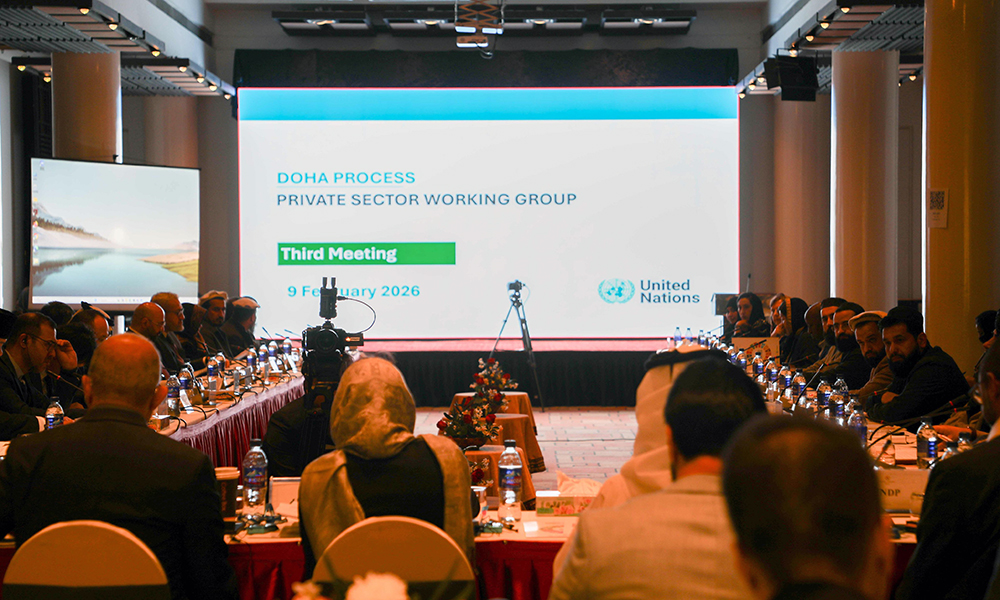
The 3rd session of the Doha Process Private Sector Working Group was held both in-person and online at Kabul’s Grand Hotel, hosted by the United Nations Assistance Mission in Afghanistan (UNAMA).
The meeting brought together representatives from the Islamic Emirate of Afghanistan, including the Ministries of Foreign Affairs, Finance, Industry and Commerce, Economy, Labor and Social Affairs, and the Central Bank, alongside UNAMA, UN agencies, international and regional organizations, as well as ambassadors, diplomats, and private sector experts.
The session was divided into two segments, focusing on growth and inclusion in the first part, and coordination and transparency in the second.
Afghanistan’s Islamic Emirate representatives shared achievements and progress since assuming governance, while participants acknowledged these efforts and highlighted their ongoing support for the private sector. All parties offered recommendations to address challenges and emphasized enhanced cooperation moving forward.
International Sports
IPL 2026: Franchise sales gather pace as global investors circle teams
Royal Challengers Bengaluru (RCB) has been put on the market by its current owner and is estimated to be worth up to $2 billion.

Developments off the field are drawing growing attention ahead of the 2026 Indian Premier League season, with two franchises — Royal Challengers Bengaluru and Rajasthan Royals — formally up for sale and attracting interest from high-profile domestic and international investors.
Royal Challengers Bengaluru (RCB), one of the league’s most recognisable teams, has been put on the market by its current owner, Diageo’s United Spirits Ltd, following a strategic review. The sale process is expected to be completed by the end of March 2026. Market estimates suggest the franchise could be valued at around $2 billion, reflecting the soaring commercial value of the IPL.
Several bidders have been shortlisted for RCB, including investment groups led by Indian industrialists, private equity firms and overseas sports owners. Among those reported to have shown interest is a consortium linked to the Glazer family, co-owners of English Premier League club Manchester United. Non-binding bids have already been submitted, with binding offers expected in the coming weeks.
Rajasthan Royals (RR), winners of the inaugural IPL title in 2008, are also in the process of being sold. A shortlist of potential buyers has been finalised, featuring a mix of Indian and international investors, including private equity firms, entrepreneurs and media-linked groups. The franchise is expected to attract a valuation of more than $1 billion, according to market estimates.
Final bids for Rajasthan Royals are anticipated in early March, while the RCB transaction is expected to move into its final phase later this month. Any change in ownership will require approval from the Board of Control for Cricket in India (BCCI).
The potential sales mark one of the most significant ownership shake-ups in IPL history and underline the league’s growing appeal as a global sports investment as preparations continue for the 2026 season.
Latest News
FM Muttaqi meets Uzbek Central Asia Institute Chief, stresses stronger bilateral cooperation
During the meeting, the two sides discussed ways to further strengthen political and economic cooperation, as well as key regional issues.
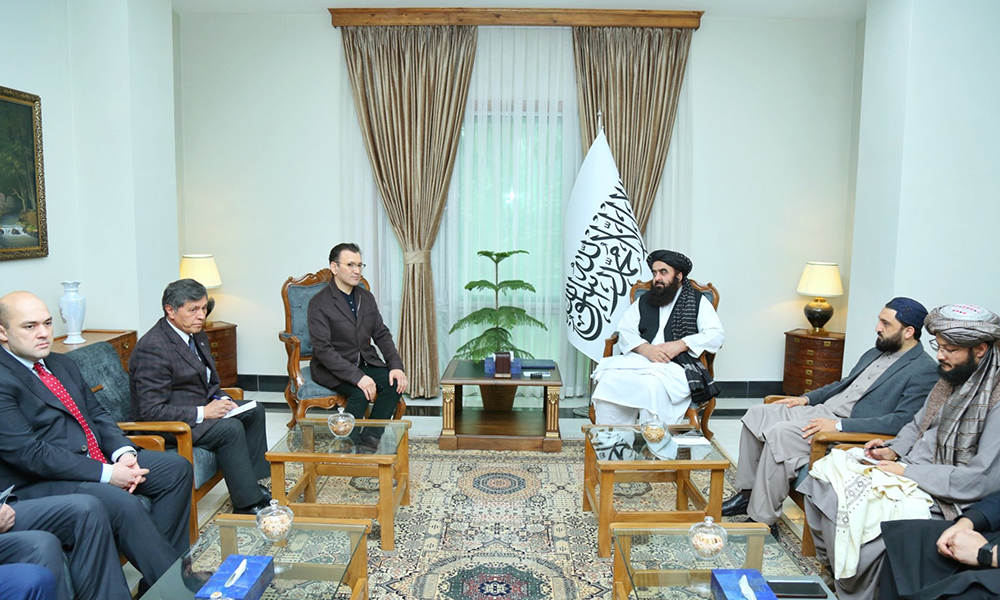
Afghanistan’s Minister of Foreign Affairs, Amir Khan Muttaqi, has met with a delegation led by Joulan Vakhabov, head of Uzbekistan’s International Institute of Central Asia and adviser to the country’s deputy president.
During the meeting, the two sides discussed ways to further strengthen political and economic cooperation, as well as key regional issues.
Muttaqi said Uzbekistan has adopted a positive and goodwill-based policy toward Afghanistan, expressing hope that bilateral relations and cooperation would continue to expand.
He also underscored the important role of research institutions in promoting mutual understanding, enhancing cooperation, and developing a realistic assessment of regional dynamics.
For his part, Vakhabov praised the progress and stability in Afghanistan and voiced optimism that trade between the two countries would increase further in the current year.
-

 Latest News3 days ago
Latest News3 days agoAfghanistan to grant one- to ten-year residency to foreign investors
-

 Sport4 days ago
Sport4 days agoIndonesia shock Japan to reach historic AFC Futsal Asian Cup final
-

 Sport5 days ago
Sport5 days agoMilano Cortina 2026 Winter Olympics: What You Need to Know
-

 Sport3 days ago
Sport3 days agoIran clinch AFC Futsal Asian Cup 2026 in penalty shootout thriller
-

 Latest News3 days ago
Latest News3 days agoAfghanistan says Pakistan is shifting blame for its own security failures
-

 International Sports2 days ago
International Sports2 days agoWinter Olympics gain momentum as medal table takes shape
-

 Latest News5 days ago
Latest News5 days agoAfghanistan facing deepening hunger crisis after US Aid Cuts: NYT reports
-
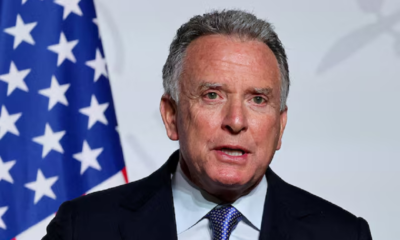
 World5 days ago
World5 days agoUS, Ukraine, Russia delegations agree to exchange 314 prisoners, says Witkoff








